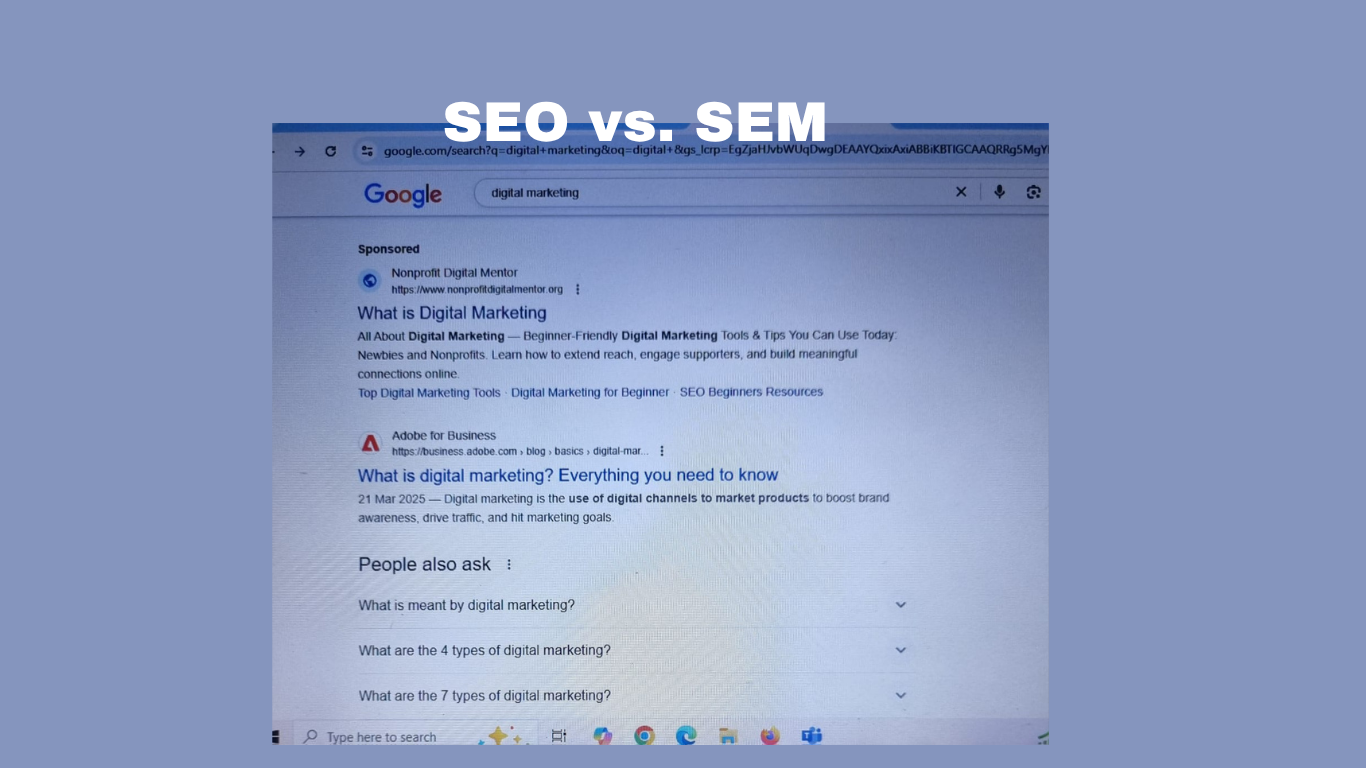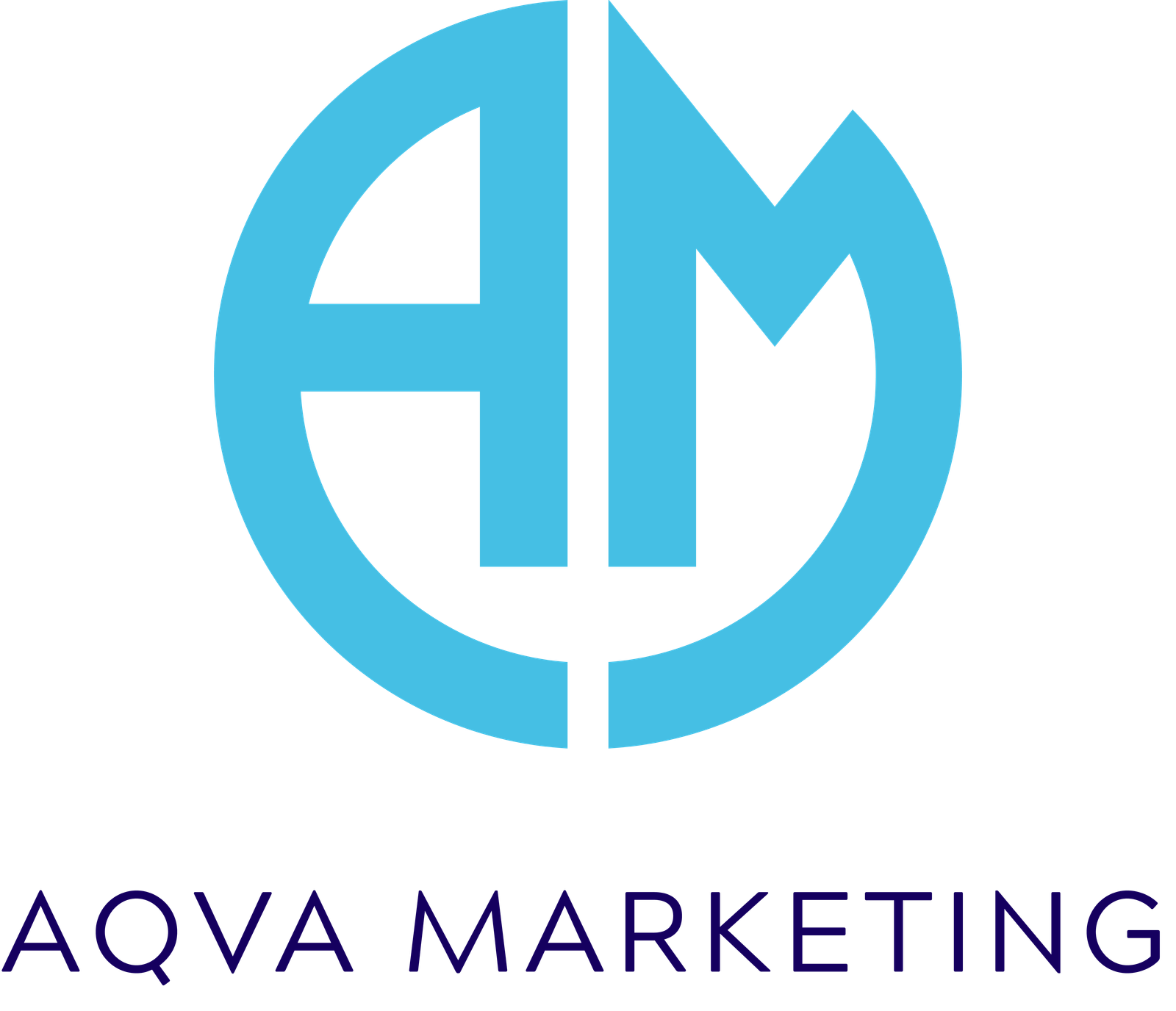
SEO vs. SEM, which one should you bet your marketing dollars on? One promises long-term growth, the other instant visibility. Clients ask us this all the time at Aqva Marketing, and the truth is that it’s not a simple either/or.
What Is SEO? (And Why Businesses Love It)
SEO is all about making your website attractive to search engines, so Google says, “This one deserves to be on page one.”
How does that happen? Through content, keywords, technical fixes, and building authority. According to BrightEdge, organic search drives 53% of all website traffic. That’s half your audience walking straight past you if you’re not investing in SEO.
We’ve seen this first-hand at Aqva Marketing. One client, a small e-commerce store, doubled their revenue in under a year without a single ad just by committing to SEO. It wasn’t magic. It was the result of consistent optimization, publishing the right content, and staying patient.
What Is SEM? (The Fast Lane to Visibility)
Now, SEM (Search Engine Marketing) is different. It’s like renting a billboard right on the busiest street in town. You pay, and you’re instantly visible. The moment you stop paying, though, the billboard vanishes.
SEM is basically running ads on search engines, Google Ads, Bing Ads, you name it. The appeal is obvious: instant traffic. Launching a new product today? You can appear at the top of Google results within hours. That’s the kind of speed SEO can’t give you.
A WordStream report showed that businesses earn $2 for every $1 they spend on Google Ads. When campaigns are done right, SEM can be a money machine. That’s why we at Aqva Marketing often recommend it for short-term pushes such as product launches, promotions, or testing new markets.
SEO vs. SEM: The Key Differences
Here’s where most businesses get stuck. Both SEO and SEM drive traffic, but their strategies, timelines, and costs differ.

1. Cost Structure
- SEO: Requires investment in content, optimization, and technical fixes. There is no direct cost per click.
- SEM: You pay for every click, whether or not it leads to a sale.
2. Timeframe
- SEO: Slow but sustainable.
- SEM: Immediate, but it stops the moment you stop paying.
3. ROI Potential
- SEO: High long-term ROI.
- SEM: High short-term ROI (if campaigns are well-targeted).
4. Audience Trust
Here’s the thing: People often trust organic results more than ads. In fact, a Search Engine Journal survey found 70% of users prefer to click on organic results instead of ads. That’s why SEO builds credibility over time, while SEM is more about visibility.
When to Choose SEO
If you’re playing the long game, SEO is your best bet. Say you’re a consultant or a service-based business and you want consistent clients for years, not just a quick spike this month. SEO builds that foundation.
When to Choose SEM
On the flip side, there are moments when you can’t afford to wait. Launching a café? Running a seasonal sale? Rolling out a new product? That’s when SEM shines.
I often say SEM is like switching on a light. You get instant visibility, instant clicks, and instant results. But the moment you turn off the switch (your budget), it all goes dark.
The Winning Formula: SEO + SEM Together
Here’s the secret: it’s not really SEO vs. SEM. The smartest brands don’t pick, they blend. Use SEM to get instant visibility while your SEO strategy quietly builds a long-term foundation.
We’ve seen this hybrid approach work beautifully for our clients at Aqva Marketing. A retail brand we worked with ran Google Ads while we optimized their organic content. Within months, their ads got them short-term sales while SEO started ranking their site for important keywords. When people saw their ad and their organic listing, credibility shot up. Double presence equals double trust.
Final Thoughts
So, which should you choose, SEO vs. SEM? If you want quick results, SEM will get you there. If you want steady, lasting growth, SEO will keep you in the game. But the real win comes when you combine them, short-term speed plus long-term stability.
Aqva Marketing can help you strike the right balance so every click, every strategy, every dollar works harder for your growth.
